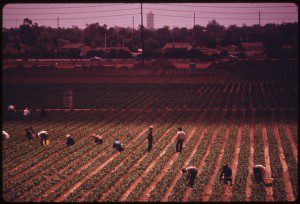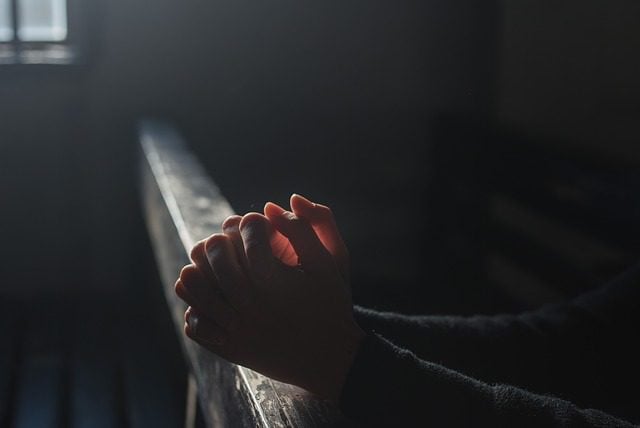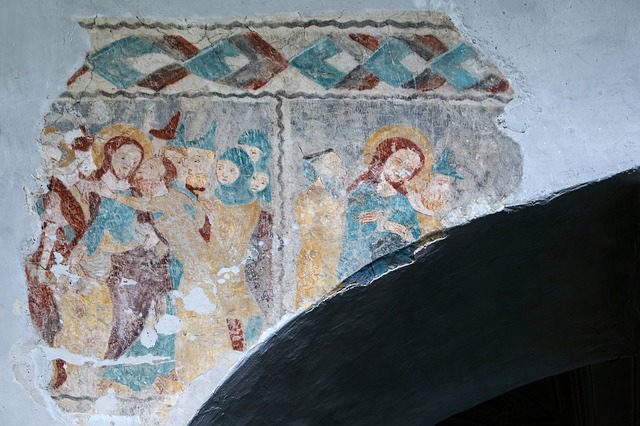I am a born and bred Texan Hispanic aka Tejano. My grandfather was born in San Saba county Texas in 1900 and his mother was a Native American Indian from that area who didn’t ever cross the Rio Grande, yet at some point they were considered “Mexicans” because they spoke Spanish and lived in Hidalgo Co. The reason that my great-grandmother and her husband spoke Spanish was because he came from Spain and had migrated here from Spain through Louisiana, not Mexico. My grandfather was light skinned and could speak English and Spanish. He worked his entire life including working a chuck wagon when he was a boy that led him to North Texas where he met my grandmother when he was an adult.
My grandmother was from New Mexico. Her mother also had Native American blood and she spoke fluent English and Spanish. Their family was Catholic and my great grandmother was very classy. She believed in education and wore driving gloves and hats to Mass on Sundays. Her and my great-grandfather got a divorce and my grandmother ended up being raised by her father. My grandmother didn’t speak English, wasn’t educated (I have no idea why) so she couldn’t read or write and she got pregnant with my mother at 13 and married my grandfather a few weeks after my mom was born even though he was not my mother’s father.
My grandfather was also considerably older than my grandmother. She was 14 and he was old enough to already have two other daughters and be widowed. As far as family history goes, this is all I know. It may not even be totally accurate other than both of my great-grandmothers were Native American and my Grandfather’s family was Spanish, not Mexican. My family didn’t really talk much about the past to younger generations, other than the “funny stories”.
My grandparents, aunts and uncles along some of my cousins ,all worked as migrant workers in the fields of the Panhandle of Texas from the 1940s to the late 1990s. A lot of those stories were shared because they were some of the best times that my family had. A lot of my aunts eloped while out working the fields because that is where they met their husbands and fell in love.
My grandfather was a walking saint. I love him, even if I was 3 when he died, I love my memory of him and everything he stood for: hard work, love of family, and the dream that his family would all get along and love each other. My grandfather has been my hero my entire life. Maybe part of what I think of him is made up from stories of his greatness, but I don’t care, carrying his last name is a badge of honor for me. That’s why I use it as my middle name now.

The Hispanic story is a very complicated one. We didn’t all come from the same place, we didn’t all get here the same way and we don’t all have the same beliefs. There are things that you’ll find are common among a lot of us, but even with common things, we are so very very different. We don’t even agree on who is “Hispanic” and who isn’t, it’s not just a matter of being a Spanish speaker. I learned the other day that Cubans don’t consider themselves Hispanic. That is news to me. But that’s what I mean, we all have our own histories, stories, life experiences and culture. We call ourselves Hispanic, Latinos, Cholos, Chicanos, Tejanos, Vatos, and those are just the names that I know. There are way way more, especially from people in the islands and S. America. Spanish isn’t even the same! We all speak it differently. I once had a circle of friends that included a Puerto Rican, Venezuelan, Colombian and a Cuban. It was crazy to understand each other and we all spoke Spanish!
Illegal immigration has been an issue since my grandfather was in charge of finding his family work in the fields in the 1940’s. It is not a new issues. My grandfather was an American citizen (by BIRTH) who would lose jobs to illegal immigrants because they would bid jobs at a lower wage. My grandfather would tell the farmers that they were illegal and rancher after rancher would pretend they didn’t know. There is a deep rooted racism against Hispanics in this state. I have been raised here and I know it firsthand. As long we don’t speak Spanish and behave ourselves then we are patted on the head and left alone, but if not then we are told to go back to were we came from by ignorant people who don’t know History enough to know that some of us are already here, right where we came from.
Now it’s 2016 and politicians talk as if this is a new issue. People say that Rubio is not Republican enough on this issue since he seems to understand that some people have been here illegally for a very long time, they have built lives here and have children, grandchildren and homes here. Some don’t even have family in Mexico anymore which makes deporting them all impossible and in some cases cruel. That isn’t politics, it’s just plain fact. You can’t round them all up and send them “back home” and not break up families. Even if you could, that wouldn’t be the Catholic thing to do, which Pope after Pope has said.
On Meet the Press, Rubio said that he doesn’t want open borders and that he doesn’t believe Pope Francis is calling for that, he is right. The Catholic Church teaches that a country has the right to protect its borders. What we don’t have the right to do is punish people for breaking a law that we as a country turned a blind eye to for decades when it benefited us. And no matter what anyone says, it did benefit us to have cheap labor. All of us did and still do because without people in fields picking fruit and vegetables for slave wages, we would be paying high prices at the grocery store.

Taken in May of 1995
When I was 16 years old my mother made me go to work in the fields with my aunt and her children. I lasted one whole day. I peed my pants because you can’t go to the bathroom while out there and I cried like a baby and begged to go home. I hated every single humiliating minute of it. When I got home I went to find any job that I could find to make sure that I wouldn’t have to go back out there. Trust me, we don’t want those jobs. We don’t even want fast food jobs these days! But we really don’t want the back breaking work that a lot of undocumented workers will do in order to support their families. No matter what is in fashion to believe about them, that is what the majority of people who migrate here without papers want: to support their families.
This is a personal issue for me because of who I am, where I was born and where I come from. Also because my oldest son is the grandson of a Mexican man who came here illegally and worked his butt off his entire life for his family. He was also a Deacon in the Catholic Church and gave of himself to his Parish as well.
The minute that any Catholic, politician or not, forgets to see the humans behind this issue and only see the issue, they forgetting the central point of our faith and that is the dignity of the human person. Yes, we need to secure our borders and that has been a need for a very long time, but we also need to see families and human beings who want a better life rather than people who “steal our jobs” and are “murders and drug dealers”.
I also dated plenty of drug dealers in my life. Fences and walls won’t keep them out, because they are American. The demand for drugs is American. That’s not very popular to say, but it’s true. I’ve lived in those circles, the problem isn’t undocumented people. It is much much deeper than that. It’s going to take much more than anti-immigrant rhetoric to sort through it. We need a good long look at history, at the exploitation of workers by farmers and at the reason why the demand for drugs even exists. Basically it is going to take us talking and listening to one another, including those who risk their lives to come here illegally. I know that is a shocking concept, but it may work a lot better than assuming to know why millions of people cross a border not knowing what waits for them on the other side. A great way to see someone as human is to talk to them like one.
Stay in touch! Like Leticia Ochoa Adams on Facebook:











